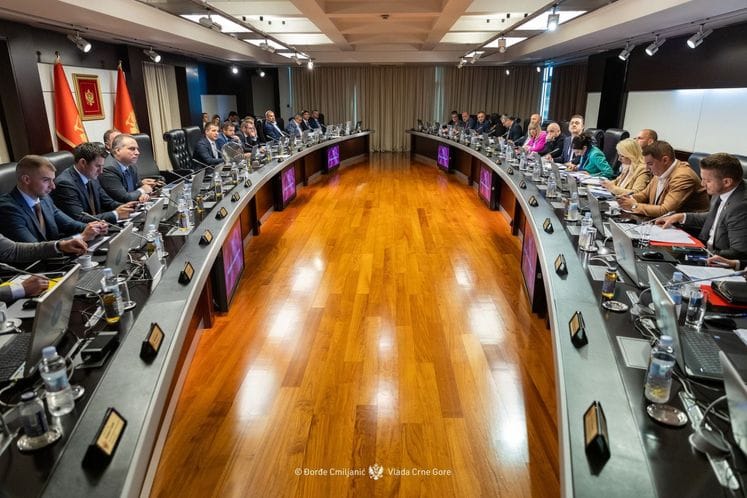- Government of Montenegro
Press release from the 49th Cabinet session
Press release from the 49th Cabinet session

The Montenegrin Cabinet held its 49th session, chaired by Deputy Prime Minister Aleksa Bečić.
The Cabinet adopted the Guidelines for Macroeconomic and Fiscal Policy for the Period 2024-2027. These guidelines, based on strategic and planning documents, will form the basis for drafting the 2025 budget. Preliminary forecasts indicate a real economic growth of 3.8% in 2024, driven by further growth in tourism, continued high private consumption, and recovery and growth in investments, supported by the capital budget for 2024. Montenegro’s economy is expected to grow at an average annual rate of 3.7% over the medium term, with projections of 4.8% growth in 2025, 3.1% in 2026, and 3.2% in 2027. The primary drivers of growth over the next three years will be strong domestic demand, particularly private consumption and investments, bolstered by the removal of business barriers. The medium-term economic growth prospects are supported by the EU’s financial instruments under the Growth Plan.
In terms of public revenues, projections for 2024-2027 range from €3.162.5 million (45.4% of GDP) in 2024 to €3.497.1 million (40.6% of GDP) in 2027. Notably, budget revenues for the first seven months of 2024 exceeded expectations by €95.5 million (6.5%) and were €124 million (8.6%) higher than the same period in 2023. Excluding one-off revenues, the budget revenues for the first seven months of 2024 were €237.2 million (18.2%) higher than in 2023.
Public expenditure in 2024 is planned at €3.401 million or 46.7% of GDP. From 2025 to 2027, public expenditure will nominally increase but will decrease as a share of GDP, reaching 43.9% by 2027. The Ministry of Finance has been tasked with preparing budget guidelines for 2025 and distributing them to relevant units, while these units must submit budget requests by 27 September 2024.
The Cabinet adopted the Draft Law on Amendments to the Law on State Property, aligning it with the new Law on Renewable Energy Use. This includes procedures for leasing state-owned land for renewable energy production.
The Cabinet approved an agreement to provide credit and grant funds to the Municipality of Ulcinj for the implementation of Phase V of the water supply and wastewater project on the Adriatic coast. A total of €6.36 million will be allocated to the project, including €5.36 million in loans and €1 million in grants from KfW Bank. The goal is to improve water and wastewater infrastructure, which will support tourism development and sustainable environmental protection. Ulcinj has been granted a ten-year grace period to ensure financial stability, with repayment due by 30 December 2043.
The Cabinet discontinued the long-term land lease at the Briska Gora site in Ulcinj for the construction of a solar power plant, as no bids met the public tender criteria. The Coordination Body for the "Europe Now 2" Programme was established, led by Minister of Labour, Employment, and Social Dialogue Naida Nišić. This body will consist of 27 members.
The Cabinet adopted measures to manage animal carcass disposal, focusing on preventing the spread of Q fever, as Montenegro lacks a system for processing or disposing of animal by-products. Plans are underway to build facility with World Bank assistance, but completion is not expected before 2027.
The Cabinet agreed to issue consent for the erection of a monument to Metropolitan Amfilohije.
The Cabinet approved urban-technical conditions for the construction of solar power plants at the following sites: "Riječani", "PV-Petrovići", and "Solar 200".
The Cabinet adopted a plan to renovate and equip the press room in the Government building.

